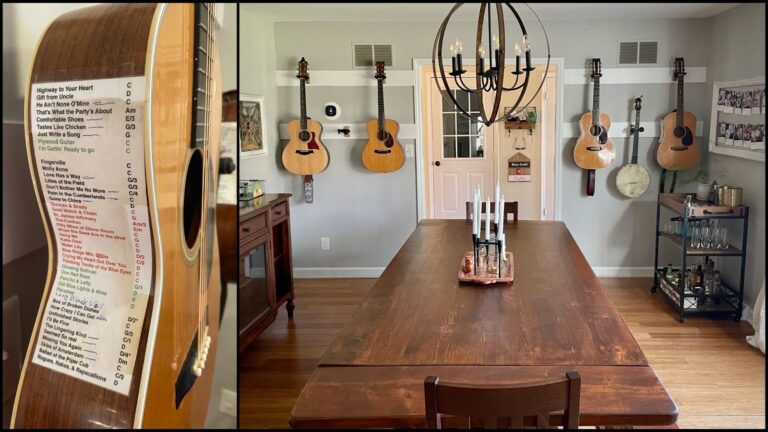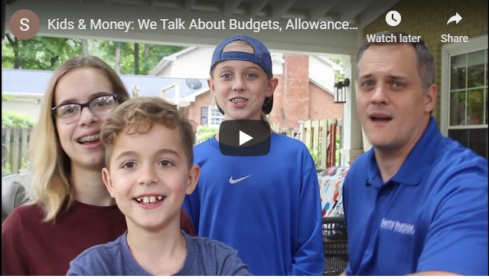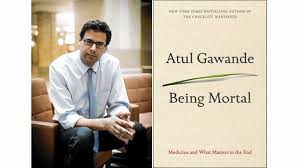Would You Rather Drive a New Car or Travel the World For a Year?
I’ve said this before, but one of my favorite hiking games is “would you rather.” So, I want you to imagine that we are hiking on a foggy day in the Blue Ridge Mountains and I ask you, “Would you rather buy a brand new car or travel the world for a year?” It’s a great question, but are they even comparable? The answer is yes, and I’ll show you how below.

According to Tim and Julie from “Earth Trekkers,” it should cost a single person around $25,000 to travel around the world for an entire year. I’ve included a link to their article and math HERE. Keep in mind that this cost doesn’t account for the opportunity cost of a loss or change in income. Also, $25,000 is not a hard and fast number; in the article, they say:
“This is just the midrange. Yes, you can travel for less than $20,000 per person for an entire year. Many people have done it and written about it. Alternatively, you could spend more on luxury, traveling for $40,000 to $50,000 or more per person.”
On the flip side, Kelly Blue Book states that the average, 2019 new car cost, is $37,185, which is excellent because for the price of one new car you could travel the world for a year and buy a reliable used car for under $10k!
Is That All?
Although it’s fun to consider the idea of traveling the world for a year, the foundation of this question isn’t deciding between a car or vacation. The intent is to encourage myself and others to align our spending with things that improve our lives the most. With this in mind, I’ve highlighted four categories where we see clients and ourselves receive the most joy per dollar.
High Returning Assets
1. Increase Your Financial Breathing Room: The cost of financial stress is often more than a dollar amount. Financial stress can, at it’s worst, be a weight on the relationships around you, because, it tends to decrease patience, flexibility, and security.
To gain financial breathing room, we prescribe an emergency fund equal to six months of your required expenses along with the capacity to replenish the fund when necessary. The first step toward this goal is to track your spending. Notice, I didn’t say to budget. Tracking is simply knowing where the money is going; budgeting is doing something about it. Once you’re ready for budgeting, make sure to leave at least a 10% margin in your budget (after retirement savings) so you can refill the emergency fund after an unexpected expense.
Some resources to aid you in tracking your spending (and then taking the next step to budgeting) are Pocket Guard, Mvelopes, Mint, and YNAB (You need a budget). If you’d like the Smith Partners’ budgeting worksheet in PDF form, then let us know, and we can email it to you.
2. Buy Experiences Instead of Things: Paying for a winery tour will give more happiness, on average, than buying a newer smartphone. Forbes describes this below.
“Recent research from San Francisco State University found that people who spent money on experiences rather than material items were happier and felt the money was better spent. The thrill of purchasing things fades quickly, but the joy and memories of experiences, from epic adventures to minute encounters, can last a lifetime.”

However, experiences don’t always mean you have to travel. We have a client who has had her fill with travel, so the notion of getting on a plane isn’t inspiring to her. In that case, an experience for her may be a pottery class, coffee with a friend, or an hour-long Nate Bargatze comedy special.
3. Spend Money on Others: As you can see in our Giving Back blog, selflessly giving away resources will decrease stress while simultaneously increasing dopamine and oxytocin levels. However, it only does so if you give altruistically. If you give with selfish motives, then the benefits are decreased if not completely taken away. U.S. News World and Health states:
“Whether you’re giving time, money, or a helping hand, you stand to receive the stress-busting benefits of altruism. However, your intentions, or how you feel about the action, matter.
‘If it’s a meaningful donation, it can have a significant impact,’ Post says, ‘but if it’s trivial or just grudging or whatever, probably not.’

4. Buy Time– A lot of people say that time is the one resource they can’t buy more of; I’d like to challenge this notion. Although we can’t buy more time, we can spend our time more efficiently. For instance, if we had 4 things to do today (work, mow the lawn, exercise, and daddy-daughter date) and we only have time for three. It is worth working fewer hours, or skipping the afternoon workout, or paying someone to mow the lawn in order to free you up to play with your daughter.
I’ve always heard that the most important job is the one that only you can do. It’s worth considering this when thinking through where to rank your time spent.
Make The Effort
Any one of the decisions above isn’t inherently better than the others. It depends on the person spending the money, their values, and which of their resources (time, stress, relationships, or money) is lacking. The goal is to shift the purchaser’s thinking from “Car A vs. Car B” to examine all of the things they could do with their dollars to ensure it is the highest returning asset. Whether that’s a return on relationships, health, less stress, or comfort. It’s worth the extra decision-making effort.








